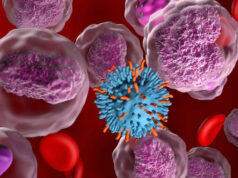 Sarah Herzog Hospital, established in 1894, is Israel’s foremost center for geriatric, respiratory mental health and psychotrauma care, treatment and research. With 330 beds, Herzog Hospital is the third largest hospital in Jerusalem. Today the hospital specializes in the full range of problems associated with agingacute medical problems; physical rehabilitation and psychogeriatrics, with special emphasis on the diagnosis and treatment of Alzheimer’s and Parkinson’s diseases; chronic respiratory care; complex medical and nursing care, dialysis and osteoporosis.
Sarah Herzog Hospital, established in 1894, is Israel’s foremost center for geriatric, respiratory mental health and psychotrauma care, treatment and research. With 330 beds, Herzog Hospital is the third largest hospital in Jerusalem. Today the hospital specializes in the full range of problems associated with agingacute medical problems; physical rehabilitation and psychogeriatrics, with special emphasis on the diagnosis and treatment of Alzheimer’s and Parkinson’s diseases; chronic respiratory care; complex medical and nursing care, dialysis and osteoporosis.
A special Children’s Chronic Respiratory Care Department provides long term respiratory care for children ranging in age from three months to 18 years. The departments of psychiatry focus on treating those suffering from schizophrenia and other mental illness. The hospital’s Clinical Center for Brain Research is internationally recognized for its work in Alzehimer’s and Parkinson’s diseases, schizophrenia and other brain disorders and diseases. Due to the dramatic growth of Herzog Hospital, a new wing is being constructed to add 240 much needed beds.
The hospital’s Community Mental Health Center treats 2,000 men, women and children each month. Services range from treating children with Attention Deficit and Hyperactivity Disorder to individuals suffering from early onset Alzeheimer’s disease.
Off campus, Herzog’s Israel Center for the Treatment of Psychotrauma treats the victims of terror attacks, domestic and school violence, Holocaust survivors and those who have suffered from the barrage of rocket attacks in the south of Israel. It also provides trauma training to professionals throughout Israel. Since 9/11, it has become an international resource center, providing psychological trauma care and training in NY; Biloxi, Mississippi, (after Hurricane Katrina); Haiti (after the earthquake); and Mexico City, plus several other places throughout the world.
The Center has developed a wealth of activities as a result of the need for trauma related services in Israel, especially for children. A key role of the Psychotrauma Center is training. Over 100 comprehensive workshops have been conducted in schools. Numerous lectures and training sessions throughout Israel have been provided by the staff of the Psychotrauma Center for mental health professionals, emergency personnel, nurses, and volunteer helpers in different agencies and organizations. The Trauma Center’s National Resilience Unit has developed innovative programs for first responders for the Israel police, firefighters and Magen David Adom to help these professionals deal with the high levels of exposure to trauma they experience at work.
The Trauma Center operates throughout Israel, not only in Jerusalem, but also in Sderot, Ashkelon, Ashdod, Nahariya, and Akko. The hospital and its Psychotrauma Center also operate METIV, the first walk-in crisis center in Israel. In coordination with Israel’s Ministry of Education, the Trauma Center’s National School Resilience Project has developed special programs in the school system to help children who have been exposed to trauma and long term stress. Four thousand teachers, and early childhood educators, counselors and school psychologists have received specialized training to help children deal with trauma. The Center’s screening program, to identify children suffering from Post Traumatic Stress Disorder, has developed a protocol, screening tools and treatment programs for nearly 42,000 children in Israel.
The Center’s Peace of Mind Project brings discharged Israeli soldiers to communities throughout North America for a week to help them with their transition back to civilian life. It combines touring, and trauma therapy to strengthen their emotional resilience. It also identifies those who may be grappling with severe psychotrauma and ensures that they receive the treatment they need and deserve.
Herzog Hospital and its Psychotrauma Center receives no funding from the government of Israel. It is sustained through user fees and philanthropic support. It maintains a balanced budget owing to strict fiscal policies.
For further information, or to make a tax deductible donation, visit www.afherzoghospital.org; email info@herzoghospital.org; call (212) 683-3702



